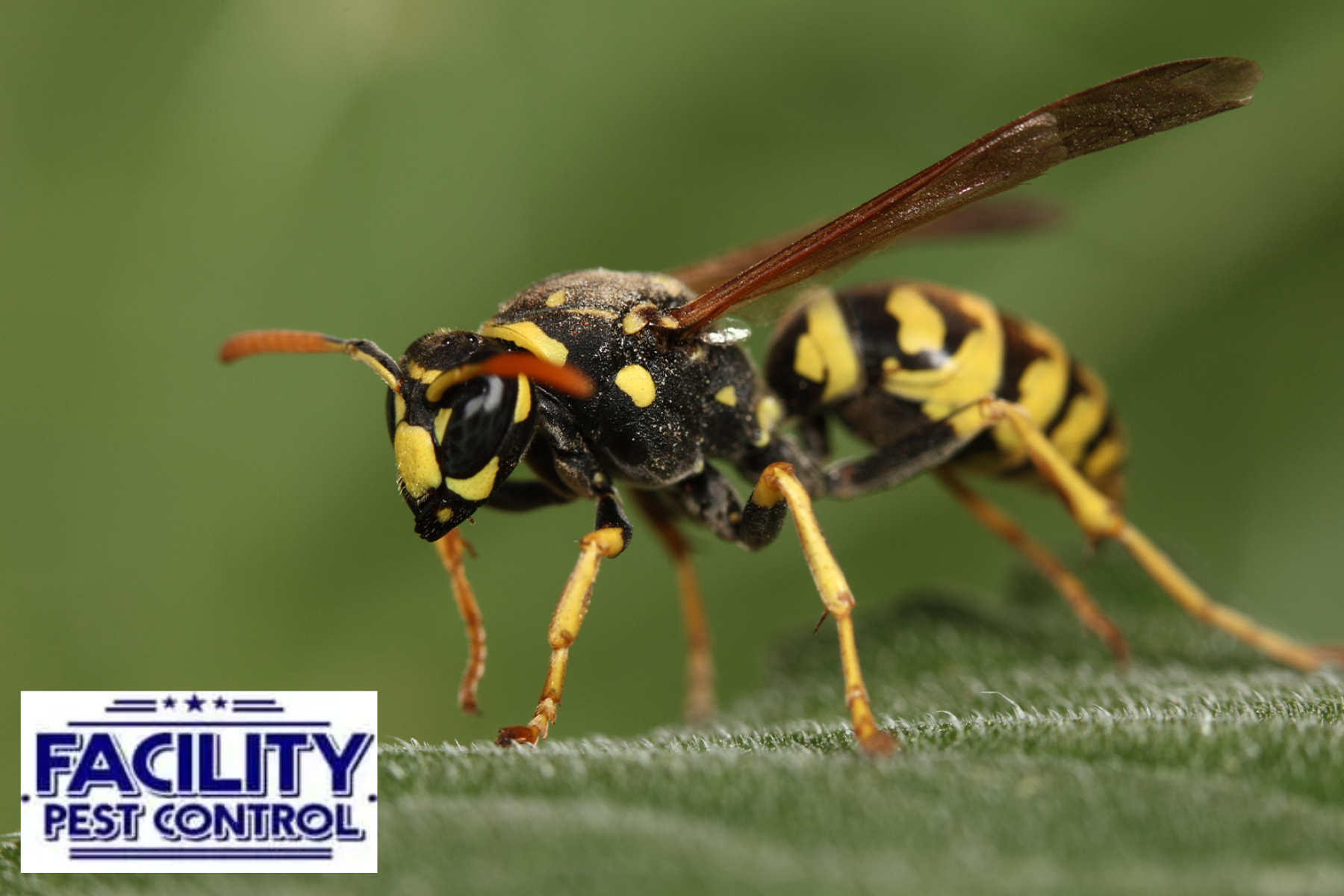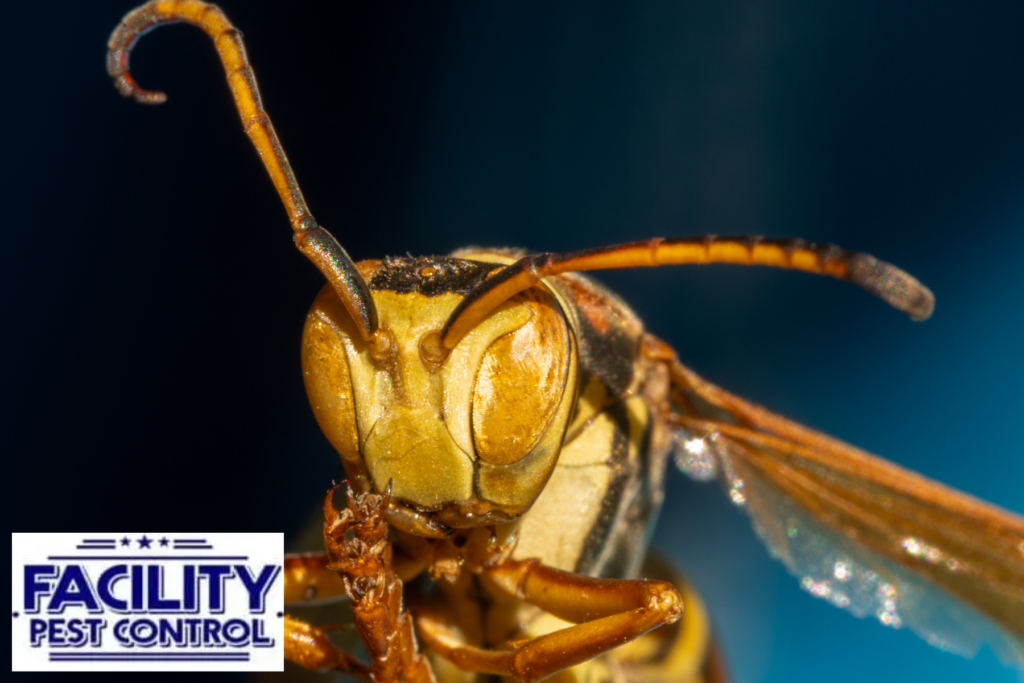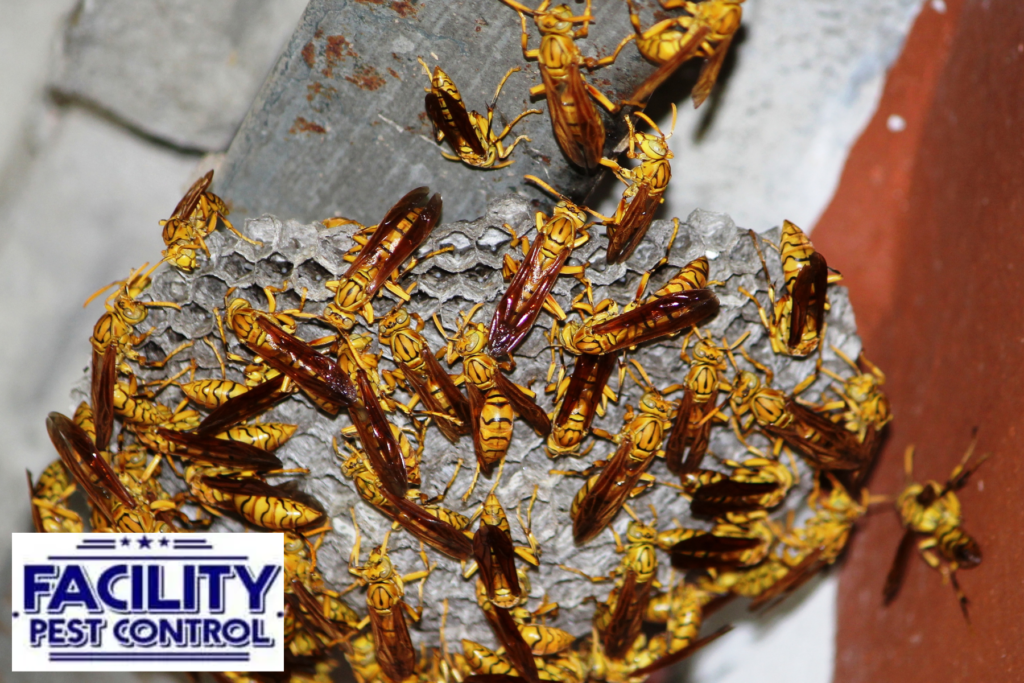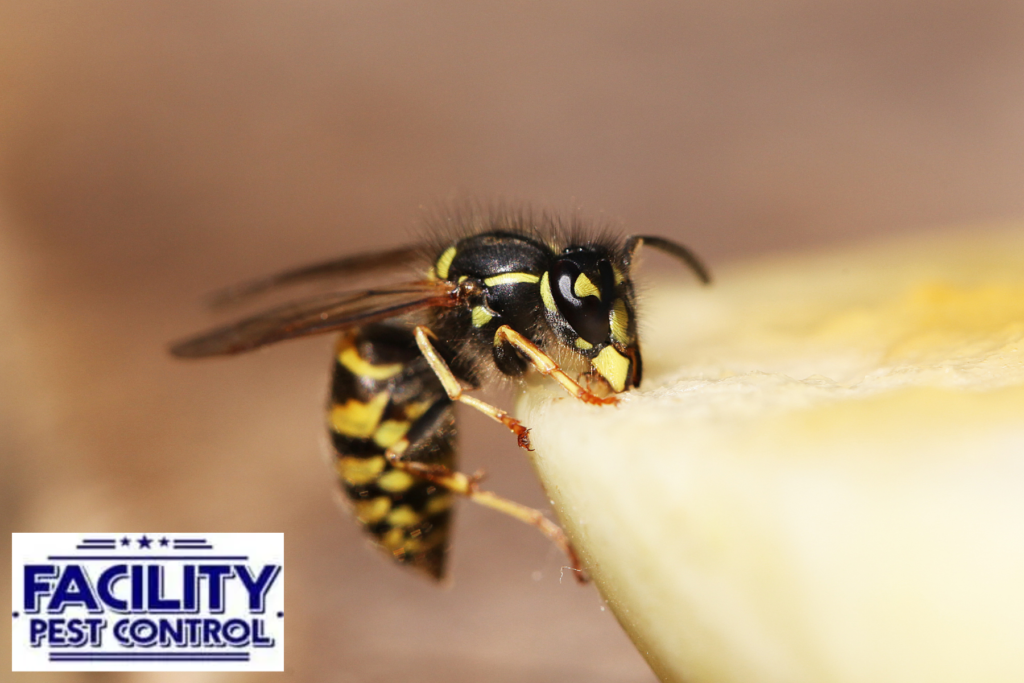Wasps are more than just an outdoor nuisance; they can be aggressive, territorial, and dangerous for those allergic to stings. While they play an important role in controlling other insect populations, having them buzzing around your home or yard is never ideal. Understanding what attracts wasps and how to keep wasps away is the first step toward maintaining a safe, wasp-free environment.
Why Wasps Come to Your Property
Wasps don’t randomly choose a spot to build their nests. They are attracted to specific resources and conditions that make your home or yard ideal for their survival.
Food Sources
Wasps are drawn to both proteins and sugars. In the spring, they actively hunt for protein-rich foods such as insects, pet food, and meat scraps to feed their larvae. Later in the summer and early fall, they switch to a sugar-based diet, seeking ripe fruit, nectar, soda, or any sweet residues left outdoors.
Water Availability
Like all living creatures, wasps need water to survive. Bird baths, pet water bowls, clogged gutters, and even leaky outdoor faucets can provide a steady water source that encourages wasp activity.
Shelter and Nesting Spots
Wasps prefer sheltered areas to build their nests. Common nesting locations include eaves, sheds, garages, hollow trees, wall cavities, and attic spaces. They choose sites that offer protection from the weather and predators.
How to Keep Wasps Away
Preventing wasps from invading your space requires a combination of good sanitation, regular maintenance, and strategic deterrents.
Eliminate Food and Drink Attractants
Keep trash bins tightly sealed and clean them regularly. Avoid leaving sugary drinks, fruit scraps, or meat outside. If you enjoy outdoor dining, promptly clear food and beverages after meals.
Remove Standing Water
Empty and clean bird baths frequently, fix leaking faucets, and make sure gutters are unclogged to eliminate unnecessary water sources. Even small puddles can attract wasps looking for hydration.
Seal Entry Points
Inspect your home for cracks, gaps, or holes in siding, roofing, or around windows and doors. Sealing these gaps helps prevent wasps from accessing attics or wall cavities to build nests.
Maintain Your Yard
Regular lawn care and trimming back overgrown vegetation reduce potential nesting areas. If fruit trees are on your property, collect fallen fruit promptly to avoid attracting sugar-seeking wasps.
Natural Deterrents vs. Professional Help
Some homeowners prefer to start with natural methods before considering professional treatment. While natural deterrents can reduce wasp activity, they’re rarely as effective as professional services for eliminating an established nest.
Natural Wasp Repellents
Essential oils like peppermint oil, clove, and lemongrass have been found to repel wasps when diluted and sprayed around entry points or outdoor dining areas. Hanging decoy wasp nests can also discourage new colonies, as wasps are territorial and avoid areas where they think another colony already exists.
Limitations of DIY Solutions
Natural repellents may deter wasps temporarily, but they won’t eliminate an active nest. Attempting to remove a nest yourself can be dangerous, as wasps will aggressively defend their territory. If you suspect a nest is nearby, searching for a wasp exterminator is the safest and most effective approach.
When to Call for Professional Wasp Control
If you notice wasp activity that persists despite preventive measures or you discover a nest, professional intervention is recommended. Experts in wasp control near me can locate and safely remove nests while offering advice for long-term prevention.
Professional services also provide peace of mind, especially for households with children, pets, or members with allergies. Technicians use specialized equipment and products that eliminate the threat quickly and safely.
Wasp-Proofing Tips to Protect Your Home Year-Round
While most wasp problems peak in summer, prevention should be a year-round effort.
Spring
- Inspect eaves, sheds, and attics for early signs of nesting.
- Seal cracks in exterior walls and roofing.
- Start applying natural deterrents to discourage nest building.
Summer
- Be diligent about cleaning outdoor eating areas.
- Regularly check high-risk areas like gutters, deck undersides, and play structures.
- Schedule pest control Simi Valley inspections for peace of mind.
Fall
- Harvest ripe fruit promptly.
- Store outdoor furniture and toys to reduce hiding spots.
- Remove unused bird feeders or clean them thoroughly.
Winter
- Repair and seal any new cracks in your home’s exterior.
- Store garbage bins indoors or in sealed storage areas.
- Have a professional inspect attics and crawlspaces for dormant nests.
Common Wasp Mistakes to Avoid
Many homeowners unknowingly make their property more attractive to wasps. Here are a few mistakes to avoid:
- Leaving food or sugary drinks unattended outdoors is not recommended.
- Ignoring small nests early in the season.
- Attempting DIY nest removal without proper safety gear.
- Overlooking hidden water sources like leaky hoses or clogged drains.
Addressing these issues promptly is key to reducing wasp activity before it becomes a larger problem.
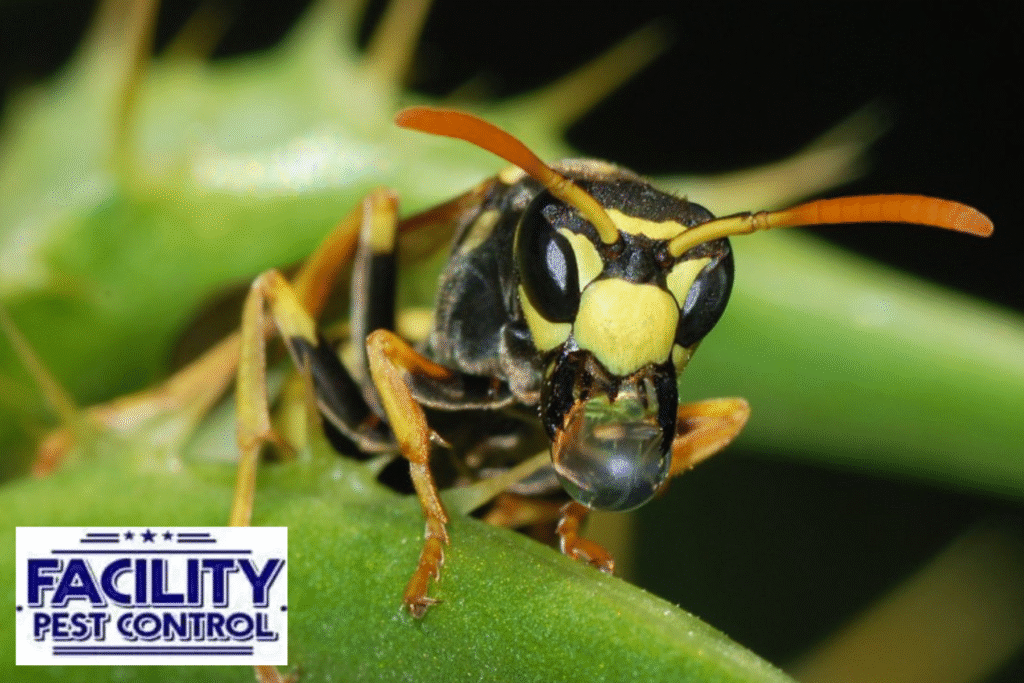
About Facility Pest Control
Facility Pest Control is a trusted local and family-owned business based in Simi Valley, CA, dedicated to providing specialized attention that big companies can’t give. Offering a full range of pest control Simi Valley CA solutions, their expert team handles ants, spiders, roaches, wasps, and more. They provide monthly, hybrid, and bi-monthly general pest control programs tailored to each property’s needs. Their services include both interior and exterior treatments, always using family and pet-friendly organic products. In addition to general pest control, Facility Pest Control also offers mosquito management services.

